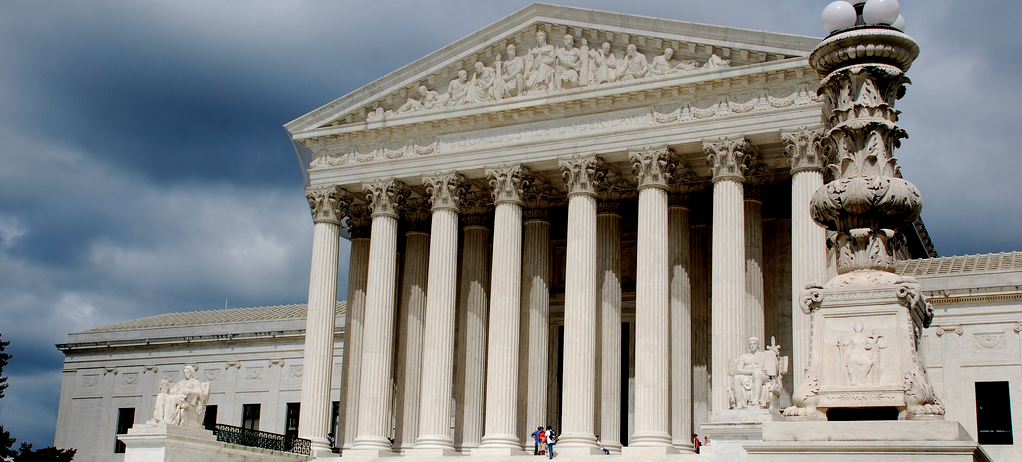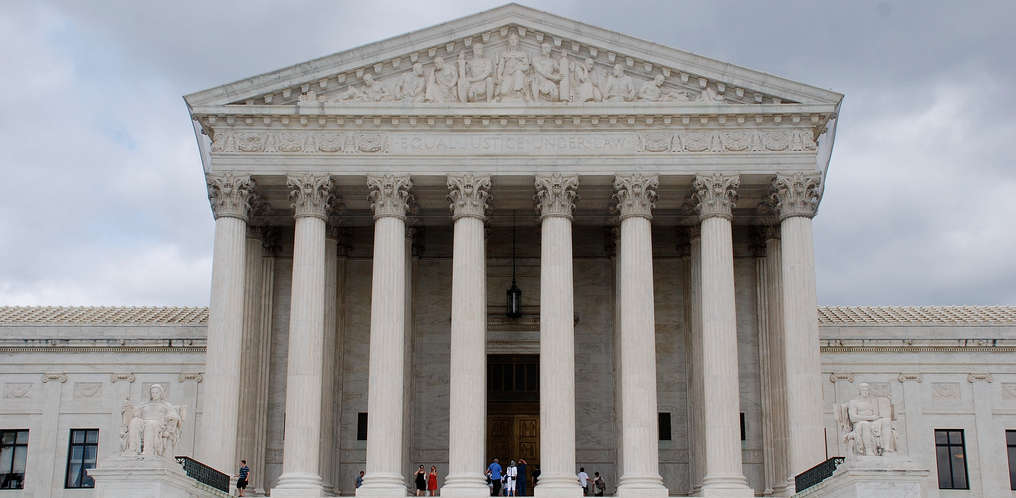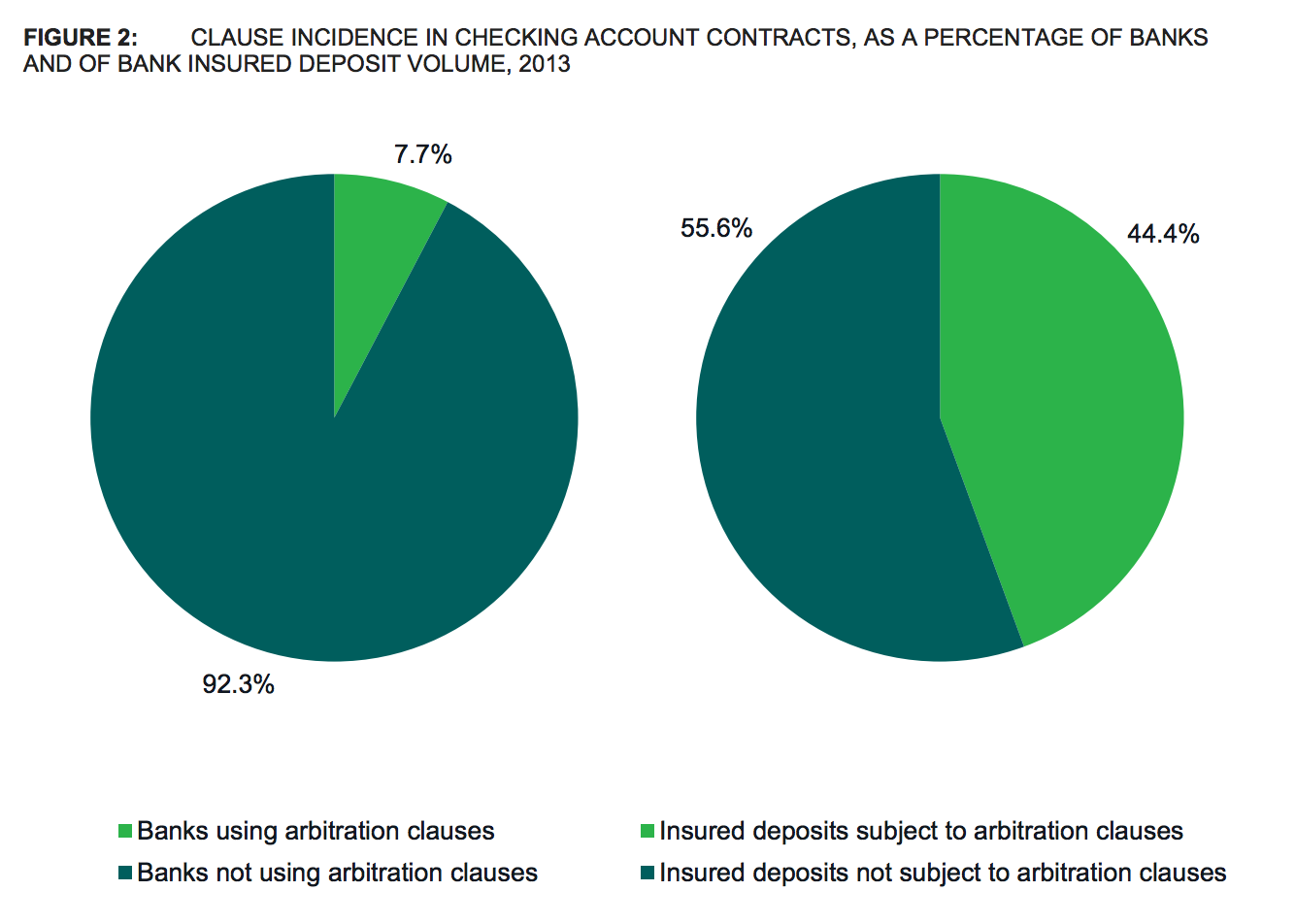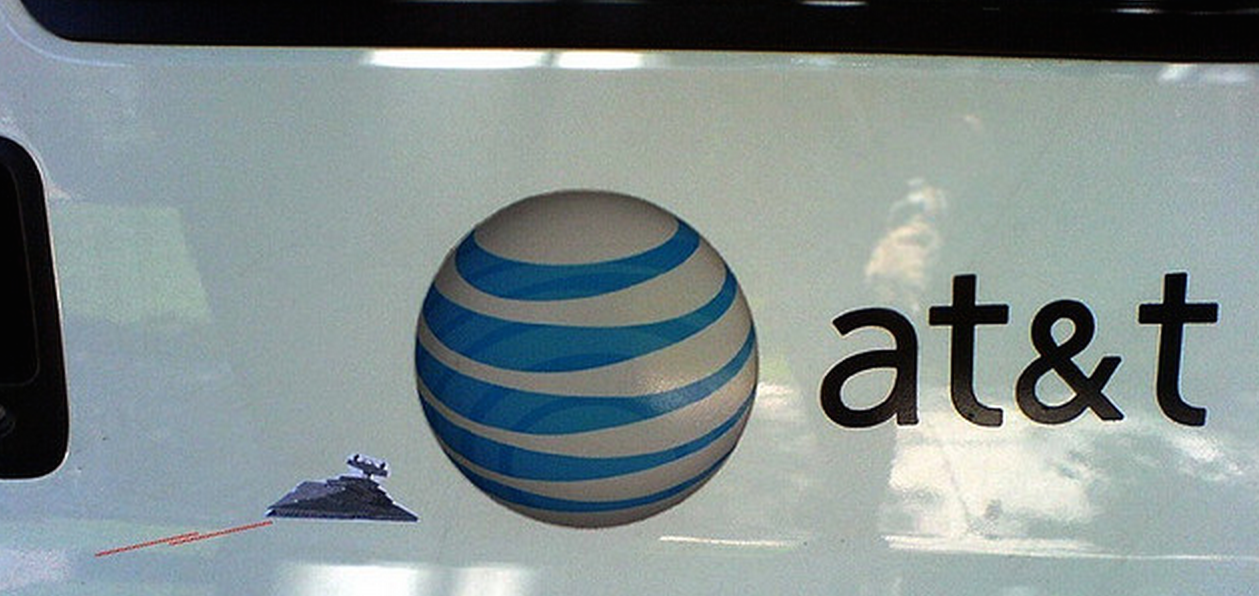If you don’t like your wireless company’s service, or your current rate plan, you’re free to change providers. But if you think your wireless provider is breaking the law, you can’t sue the company; and it doesn’t matter which of the four major carriers you have, because they all strip their customers’ of their legal rights. [More]
forced arbitration

GrubHub/Seamless Hates Its Customers, Strips Them Of Legal Right To Sue
If you have a legal dispute with online food delivery portal GrubHub (or its Seamless subsidiary), you will soon lose the ability to resolve that matter in a court of law. And if there are others out there with the same problem as you, you’ll each have to fight GrubHub on your own because the company has decided to view its all of its customers as potential litigants. [More]

Advocates: Schools Using Forced Arbitration Shouldn’t Receive Federal Aid
For-profit colleges that require students to sign away their legal rights, forcing them into arbitration in order to enroll in classes should not receive federal financial aid, a coalition of 47 consumer advocacy groups urged acting Secretary of Education John King on Friday. [More]

You Will No Longer Need To Go To Seattle To Resolve A Starbucks Card Dispute
As things stand now, if you have a legal dispute with Starbucks about your Starbucks Card, the coffee company could force you to travel to Seattle to resolve the matter — not in court, but through the shadowy, unfair process of binding arbitration. However, Starbucks is about to adopt new policies to be more flexible about the location, and give you 30 days to opt out of signing your rights away. [More]

Are You Unintentionally Signing Away Your Elderly Parents’ Right To Sue Their Nursing Home?
When an elderly parent is no longer able to make sensible medical decisions for themselves, an adult child is often named a medical proxy to handle these important calls. But does this life-or-death authority over a parent’s medical care carry over to things like signing legally binding contracts, and possible signing away your, or your parent’s, right so sue their nursing home? [More]

Senators: No More Federal Funding To For-Profit Colleges That Strip Students Of Legal Rights
If your college breaks the law, you should be able to pursue a legal action in court. But following the lead of banks, wireless providers, and cable companies some for-profit colleges have been stripping students of their legal rights and forcing them into arbitration. These schools should not receive federal funding, says one group of lawmakers. [More]

Bill Aims To Restore Consumers’ Legal Rights Stripped Away By Supreme Court Rulings
In recent years, a narrow majority of the U.S. Supreme Court has repeatedly sided against consumers’ access to the justice system, concluding that a 90-year-old law gives companies the authority to effectively skirt the legal system by preempting customers’ lawsuits. That’s why some legislators have decided it’s time to change that law. [More]

Got A Fitbit Or Other Gadget For Christmas? It’s Time To Opt Out Of Mandatory Arbitration!
Customers have filed a class action suit against Fitbit, claiming that the company’s Charge HR and Surge fitness bands don’t accurately measure users’ heart rate during vigorous exercise. We’ll keep an eye on the lawsuit and let you know if it goes anywhere, but it probably won’t, and that’s what got our attention. The users filed a class action against Fitbit despite signing (well, clicking) away their right to do so when they registered their devices. [More]

Debt Collectors Can Sue You, But Court Might Not Let You Sue Debt Collector Back
A new report claims that a growing number of debt collectors are trying to exploit a legal loophole that allows them to bring potentially frivolous lawsuits against alleged debtors, but bars those defendants from bringing their own legal action against the debt collector. [More]

Supreme Court Once Again Shows Its Disdain For Consumer Rights
For the third time in five years, the U.S. Supreme Court had a chance to reverse a terrifying trend in consumer rights by doing something, anything, to rein in “forced arbitration” clauses that strip consumers of their legal rights and effectively give companies a license to steal. And for the third time in five years, the SCOTUS majority showed its interests lie in protecting the coffers of big business rather than Americans’ access to the legal system. [More]

Groups Call On AmEx, Chase, Citi, Toyota, Others To Stop Forcing Customers To Sign Away Their Legal Rights
Once upon a time, if a company wronged a customer — not just by screwing up an order or having poor customer service, but by actually breaking the law — that customer could file a lawsuit and try to hold the company accountable. And if the company wronged lots of customers in the same way, they could join together in a class action. Now, thanks to the U.S. Supreme Court, companies can get away with breaking the law by simply including a few handy lines of text in their customer agreements and contracts. But just because the company can use this “get out of jail free” card, doesn’t mean it should. [More]

Banks Urge Congress To Continue Renewing Their “Get Out Of Jail Free” Cards
Nestled deep in the text of the lengthy contracts for most credit cards and bank accounts are little clauses that not only prohibit harmed customers from suing their bank or card issuer, but also prevents them from banding together with similarly injured consumers to argue their dispute as a group. In October, the Consumer Financial Protection Bureau announced it would consider limits on these clauses, but now the banking industry is trying to use its leverage with D.C. lawmakers to shut down that process. [More]

CFPB To Consider Rules That Would Revoke Banks’ “License To Steal”
The lengthy, often complicated terms of use for more than half of all credit cards — and nearly half of all federally insured bank deposits — include clauses that force customers into arbitration, taking away their right to sue these companies in a court of law and usually blocking them from joining together in a class action. Critics argue that these forced-arbitration clauses allow banks and other businesses to break the law with impunity. Heeding the call of lawmakers and consumer advocates, the federal Consumer Financial Protection Bureau has decided to consider rules that would ban this practice among financial institutions. [More]

Dish Taking Away Users’ Right To Sue Company In Court. Here’s How To Opt Out
Over the weekend, a number of Consumerist readers wrote to us with the bad news that, like a growing number of companies, Dish Network is updating its terms of use to strip customers of their right to dispute legal claims in a court of law. There is a way for Dish subscribers to opt out of this restriction — but only if they do it right away. [More]

In Wake Of Arbitration Report, Consumer Advocates Ask CFPB To Revoke Banks’ “License To Steal”
This morning, the Consumer Financial Protection Bureau released its final report on forced arbitration, showing how banks and credit card companies use contractual clauses to short-circuit class-action lawsuits from their customers. Now that the Bureau has done its research, consumer advocates are calling on regulators to use their authority to end the practice. [More]

Banks & Credit Card Companies Saving Millions By Taking Away Your Right To Sue
Tens of millions of American consumers have clauses in their credit card, checking account, student loan, and wireless phone contracts that take away their rights to sue those companies in a court of law, and more than 93% of these people have no idea they’ve had this right taken away from them. The companies involved are presumably quite happy about this lack of awareness, as it results in millions of dollars in savings that aren’t being passed on to you. [More]

Marching Band Delivers Petition To Citi Asking Banks To “Revoke License To Steal”
In a handful of recent decisions, the U.S. Supreme Court has affirmed the right of businesses to effectively break the law by putting a few carefully worded sentences into their contracts and user agreements. But just because you can add these clauses doesn’t mean you have to do so, which is why pro-consumer advocacy groups gathered more than 100,000 signatures on a petition that was delivered, with a little bit of music, to Citigroup HQ in Manhattan this morning. [More]



